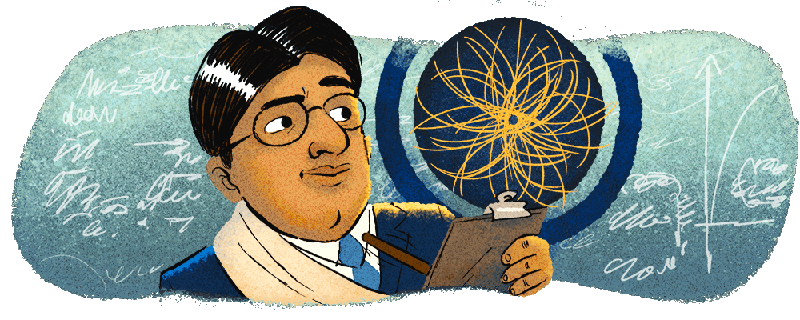 Satyendra Nath Bose
Satyendra Nath Bose Google doodles to celebrate Indian mathematician Satyendra Nath Bose's contributions
New York: Internet search engine Google on Saturday celebrated Indian physicist and mathematician Satyendra Nath Bose's contribution to the Bose-Einstein Condensate.
On this day in 1924, he sent his quantum formulations to Albert Einstein who immediately recognized it as a significant discovery in quantum mechanics, reads the Google Doodle website.
Bose’s journey to fame started in academics. Each day, his father who was an accountant would write an arithmetic problem for him to solve before leaving for work, feuling Bose’s interest in mathematics.
At age 15, Bose began pursuing a Bachelor of Science degree at Calcutta’s Presidency College and earned a Master’s in Applied Mathematics at the University of Calcutta soon after.
Graduating top of his class for both degrees, he solidified his esteemed position in academia.
By the end of 1917, Bose began giving lectures on physics. While teaching postgraduate students Planck’s radiation formula, he questioned the way particles were counted and began experimenting with his own theories.
He documented his findings in a report called Planck’s Law and the Hypothesis of Light Quanta, and sent it to a prominent science journal called The Philosophical Magazine.
To his surprise, his research was rejected. At that moment, he made the bold decision to mail his paper to Albert Einstein.
Einstein indeed recognized the significance of the discovery — and soon applied Bose’s formula to a wide range of phenomena. Bose’s theoretical paper became one of the most important findings in quantum theory.
The Indian government recognized Bose’s tremendous contribution to physics by awarding him one of the highest civilian award in the country, the Padma Vibhushan. He was also appointed as National Professor, the highest honor in India for scholars.
As a a true polymath, Bose went on to serve as president of many scientific institutions including the Indian Physical Society, National Institute of Science, Indian Science Congress and the Indian Statistical Institute. He was also an adviser to the Council of Scientific and Industrial Research, and later became a Fellow of the Royal Society.
In honor of Bose’s legacy, any particle that conforms with his statistics today is known as a boson. Many scientific breakthroughs have come from his work including the discovery of the particle accelerator and the God particle.
Support Our Journalism
We cannot do without you.. your contribution supports unbiased journalism
IBNS is not driven by any ism- not wokeism, not racism, not skewed secularism, not hyper right-wing or left liberal ideals, nor by any hardline religious beliefs or hyper nationalism. We want to serve you good old objective news, as they are. We do not judge or preach. We let people decide for themselves. We only try to present factual and well-sourced news.







